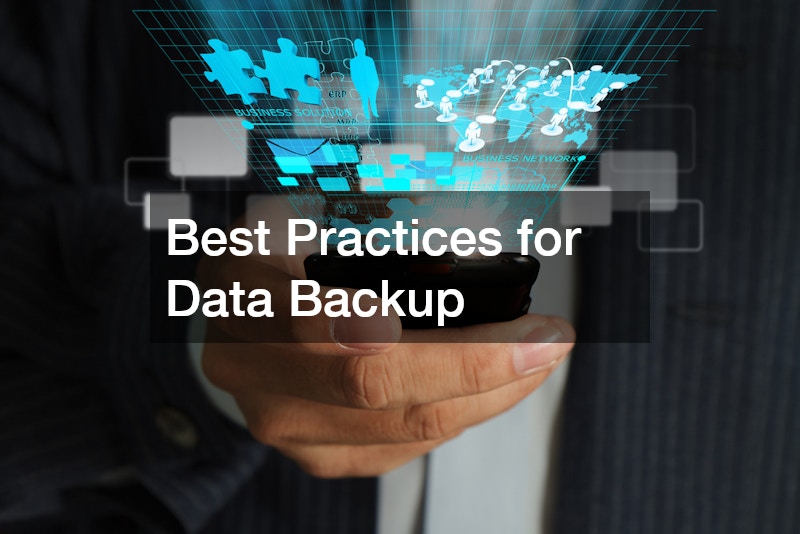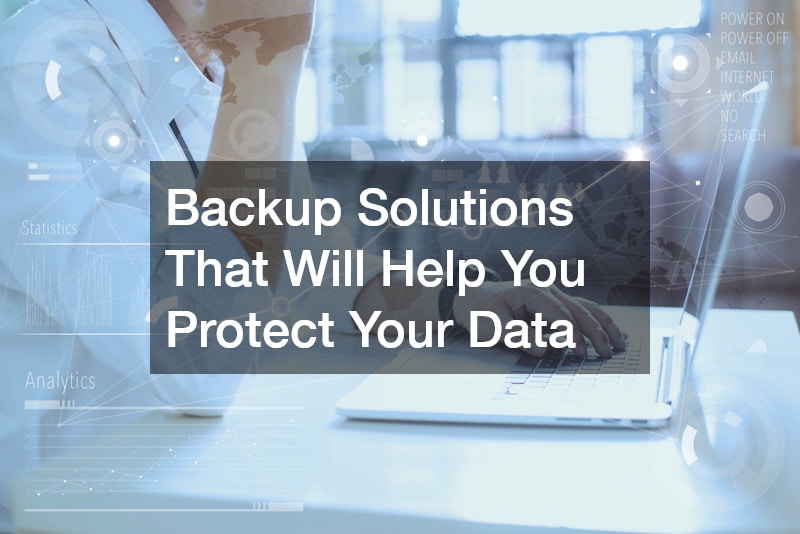In today’s digital world, data is one of the most valuable assets, whether you’re a business owner or an individual user. Losing important files, sensitive information, or irreplaceable photos can be catastrophic. Fortunately, there are numerous backup solutions designed to protect your data and offer peace of mind. This article explores various backup methods and the importance of implementing a reliable backup strategy, with a focus on services like Box and Dropbox.
Why You Need Backup Solutions
Data loss can happen for many reasons—hardware failure, accidental deletion, cyberattacks, or even natural disasters. Without proper backup solutions, these events can leave you scrambling to recover lost files, which may not always be possible.
Whether you’re a small business safeguarding client records or an individual keeping personal documents safe, having a solid backup strategy is essential.
Backup solutions ensure that your files are stored securely and can be retrieved easily when needed. But not all backup methods are created equal, and choosing the right solution depends on your needs, data volume, and how quickly you need to access your files.
Cloud-Based Backup Solutions
Cloud-based backups have become one of the most popular methods of data storage in recent years. They offer several advantages over traditional physical backups like external hard drives or USBs, especially in terms of accessibility and security. Services like Box and Dropbox have emerged as convenient platforms for file storage, collaboration, and sharing, but they can also play a key role in your backup strategy.
Backup Solutions for Box and Dropbox
Both Box and Dropbox are leading cloud storage services that many individuals and businesses use for storing and sharing files. However, while these platforms provide built-in redundancy to protect against data loss, you should still implement an additional backup layer to protect your files. Here’s why and how you can effectively use backup solutions for Box & Dropbox.
1. Box Backup Solutions
Box is a secure cloud storage platform, ideal for businesses due to its advanced security features and collaboration tools. It’s important to have a backup solution in place, even if Box already offers some level of protection.
- Automated Backup Tools: Tools like Backupify or Spanning Backup allow you to automatically back up your Box files to a secondary cloud platform or external drive. These services run scheduled backups and ensure that your data is accessible even if Box experiences an outage.
- Version Control: Box offers version history, which means previous versions of your documents are available for recovery if needed. However, for long-term data protection, you should consider a solution that exports your files periodically.
2. Dropbox Backup Solutions
Dropbox is another popular cloud storage platform used by businesses and individuals alike. Like Box, Dropbox provides some internal safeguards, but setting up a comprehensive backup system adds another layer of protection.
- Third-Party Backup Software: Backup solutions for Box & Dropbox, such as CloudAlly and Afi.ai, can create automated backups of your Dropbox files to another cloud location, ensuring your data is safe even if your Dropbox account is compromised.
- Local Backup: In addition to using cloud-based solutions, you can set up local backups. This can be as simple as periodically downloading your Dropbox files to an external hard drive or computer.
On-Site Backup Solutions
While cloud-based backups are incredibly useful, on-site backups remain a reliable method for many. These involve physically storing data in your office or home using external hard drives, network-attached storage (NAS), or even dedicated backup servers.
External Hard Drives
External hard drives are a popular option for individuals and small businesses due to their affordability and ease of use. Simply connect the hard drive to your computer and copy important files manually or use backup software to automate the process.
Benefits:
- Portability: You can easily carry your data wherever you go.
- Affordability: These drives come in various capacities and price points, making them accessible for most users.
Downsides:
- Physical Damage or Loss: External hard drives can fail or be lost, leading to data loss.
- Limited Capacity: Although some high-capacity drives are available, they are still limited compared to the scalability of cloud storage.
Network-Attached Storage (NAS)
NAS is a more advanced on-site backup solution, offering a centralized storage system that can be accessed from multiple devices on a local network. NAS devices often come with built-in redundancy (RAID), which protects against hardware failure by mirroring data across multiple drives.
Benefits:
- High Capacity: NAS systems can store vast amounts of data and are easily expandable.
- Remote Access: Many NAS devices allow users to access their files remotely, much like cloud storage.
Downsides:
- Cost: NAS systems can be expensive, especially for advanced models with RAID configurations.
- Complex Setup: Configuring and maintaining a NAS system requires some technical knowledge.
Hybrid Backup Solutions
A hybrid backup strategy combines the best of both cloud and on-site backups. By storing your data in multiple locations, you minimize the risk of data loss and ensure that you can quickly recover files in various situations.
Why Hybrid Solutions Work Best
- Redundancy: Having your data backed up in more than one place (cloud and physical) ensures that if one backup fails, you have another option.
- Accessibility: Cloud backups allow you to access files from anywhere, while on-site backups provide fast recovery in case of local issues like a poor internet connection.
- Security: Cloud storage often includes encryption and security measures, while local backups can be protected with physical security measures like safes or locked cabinets.
Best Practices for Data Backup

No matter which backup solutions you choose, it’s essential to follow best practices to ensure your data is fully protected.
1. Follow the 3-2-1 Rule
A well-known backup strategy is the 3-2-1 rule, which recommends having three copies of your data: two local (on different devices) and one off-site (cloud storage). This approach minimizes the risk of losing all copies of your data simultaneously.
2. Schedule Regular Backups
Set up automatic backups where possible. For backup solutions for Box & Dropbox, scheduling regular backups using third-party tools ensures that your files are always up to date without requiring manual effort.
3. Test Your Backups
Regularly testing your backups is essential to ensure that they are functional and that you can recover your files when needed. Testing involves restoring files from backups to verify that the data is intact.
4. Encrypt Sensitive Data
For extra security, especially when dealing with sensitive personal or business data, encrypt your backups. This can protect your files from unauthorized access.
5. Keep Backup Hardware in Safe Locations
If you’re using physical backup solutions like external hard drives or NAS, store them in secure locations. Consider using fireproof and waterproof safes to further protect your backup devices from environmental threats.
Data loss is a serious risk in our increasingly digital world, but with the right backup solutions in place, you can mitigate this risk and protect your valuable information. Whether you opt for cloud-based backups with services like Box and Dropbox, on-site storage solutions like external hard drives or NAS, or a hybrid approach, the key is to establish a reliable backup system. Incorporating backup solutions for Box & Dropbox into your overall strategy will give you additional layers of protection, ensuring your data is safe and easily recoverable when needed.








